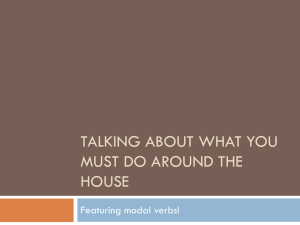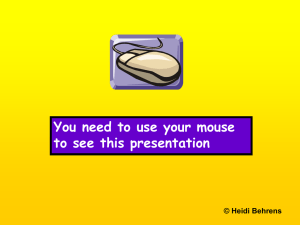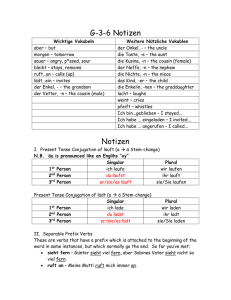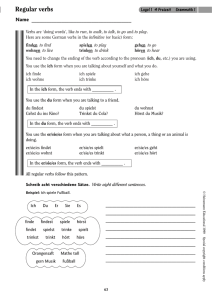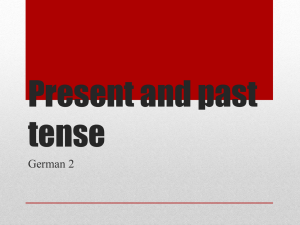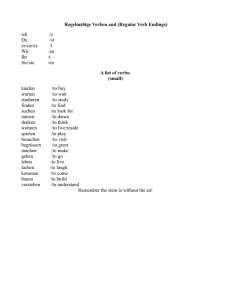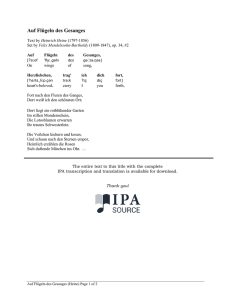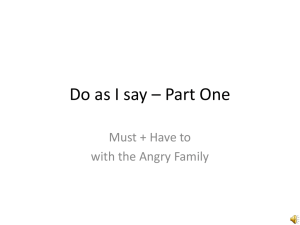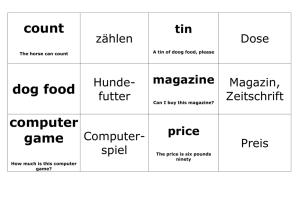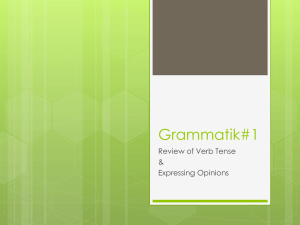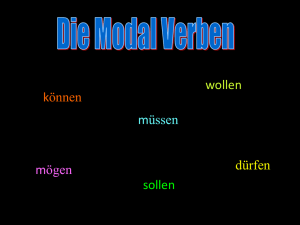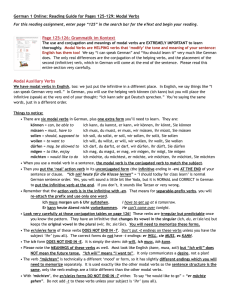`müssen` and
Werbung
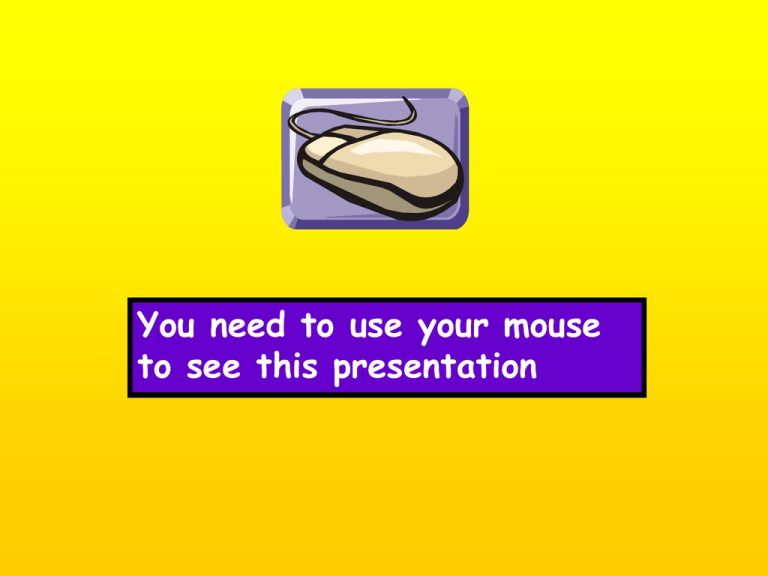
You need to use your mouse to see this presentation Hilfst du im Haushalt? • You probably know now how to say what you do at home • Now you want to say what you have to, what you are supposed to and what you want to or don’t want to do. • In order to do that you need to use ‘MODAL VERBS’ This is what the ‘MODAL VERBS ‘müssen’ and ‘sollen’ and ‘wollen’ look like if you use them in the PRESENT TENSE müss ich du Sie er/sie/es wir ihr sie en muss muss t müss en muss müss en müss t müss en (to have to) (I have to/I must) woll ich du Sie er/sie/es wir ihr sie en will will st woll en will woll en woll t woll en (to want to) (I want to) soll ich du Sie er/sie/es wir ihr sie en soll soll st soll en soll soll en soll t soll en (to be supposed to) (I am supposed to) Let’s have a look at the following: • THE PRESENT TENSE • THE PRESENT TENSE using MODAL VERBS The Present Tense Ich leere den Mülleimer (I empty the bin) TRANSFORMATION – Present Tense Pr. T. Modal verbs Ich den Mülleimer The Present Tense with Modal verbs Ich muss den Mülleimer (I have to empty the bin) leer en Have you noticed…..? • ‘Ich leere’ becomes ‘Ich muss…leeren’ • 1. Find the correct form of the MODAL verb for ‘Ich’ which is ‘muss’ • 2. Send the INFINITIVE (here: leeren) to the END OF THE SENTENCE!!!!! The Present Tense Ich passe auf meine Schwester auf (I look after my sister) TRANSFORMATION – Present Tense Pr. T. Modal verbs Ich auf meine Schwester auf The Present Tense with Modal verbs Ich soll auf meine Schwester auf (I am supposed to look after my sister) pass en Have you noticed…..? PRESENT TENSE • The verb ‘aufpassen’ was split and the prefix ‘auf’ went to the END OF THE SENTENCE. This is because it is a separable verb! • In a sentence with a MODAL VERB, the prefix ‘auf’ is re-united with the main part of the verb ‘passen’ and BOTH go to the END OF THE SENTENCE, i.e. Ich muss….aufpassen
